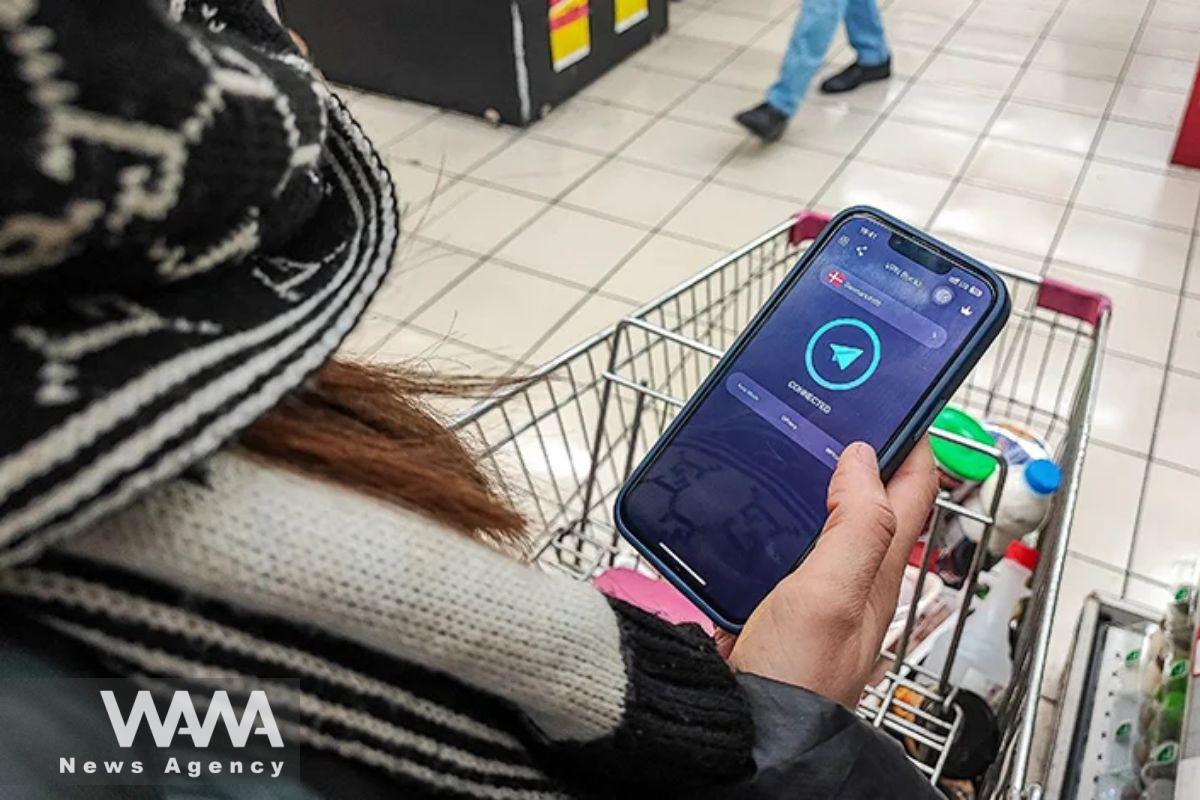The Shadow Economy of VPNs in Iran
WANA (Jan 05) – In recent years, extensive internet filtering in Iran has profoundly altered not only user behavior but also the information technology market. One of the most significant outcomes of these policies has been the explosive growth of the VPN market and unprecedented profits for sellers of these tools, with far-reaching economic, social, and security implications.
Significant Financial Turnover in the VPN Market
As internet restrictions intensified, demand for VPNs skyrocketed, turning the VPN market into one of the most lucrative sectors within the informal economy. According to estimates, the market’s monthly turnover in Iran amounts to millions of US dollars.
Sattar Hashemi, Iran’s Minister of Communications, stated that “83% of mobile users rely on VPNs.” It is estimated that the market’s revenue fluctuates between approximately 575,000 to 3.8 million USD. While these figures lack transparency, they underscore the remarkable growth of this industry.

An Iranian man looks at his mobile phone after the ban on WhatsApp and Google Play was lifted, in Tehrann, Iran December 27, 2024. Majid Asgaripour/WANA (West Asia News Agency)
Some political figures, including Zarghami and Hemmat, have emphasized the higher estimate of 3.8 million USD. However, none of them have provided concrete or documented sources for these revenue claims, leaving it unclear how this figure was calculated or where it originated.
For example, in 2023, the Deputy Prosecutor of Qom province of Iran announced the arrest of two individuals involved in VPN sales, with a financial turnover of $882,071 USD. This case highlights how even smaller-scale sellers can achieve substantial profits.
The booming VPN market in recent years has generated massive profits for some, despite being an illegal trade. Yet, it appears that no one is willing to expose the key players. From officials in Rouhani’s administration to those in Pezeshkian’s government, responses have been limited to Twitter posts and media comments, without any substantive action.

New Openings in Iran’s Longstanding Filtering Dispute
WANA (Dec 25) – In recent years, the issue of internet filtering and lifting restrictions has become one of the key topics in Iran’s technology and communication policy-making. Recently, the announcement of the unblocking of two widely used platforms, WhatsApp and Google Play, has drawn the attention of experts and users, raising critical questions about […]
Social Impacts: Normalization of VPN Use
One of the most significant social consequences of the rise of VPNs is the normalization of their use within society. From students and teenagers to owners of online businesses, everyone has come to rely on VPNs for their daily activities.
In educational environments, using VPNs to access scientific and research resources has become a necessity, highlighting the inefficacy of the filtering policies. On the other hand, easy access to VPNs exposes teenagers to inappropriate content, raising widespread social concerns.
Interestingly, some students have also entered the VPN sales market, generating income through this avenue. This phenomenon indicates the emergence of a new culture within the technology sector, one that will be difficult to regulate and monitor.

An Iranian man looks at his mobile phone after the ban on WhatsApp and Google Play was lifted, in Tehran, Iran December 27, 2024. Majid Asgaripour/WANA (West Asia News Agency)
Security Challenges: The Hidden Threats of VPNs
Although VPNs provide a solution for bypassing restrictions, their security risks cannot be overlooked. Many of these tools are developed by unknown sources, and the likelihood of personal data theft is very high.
The lack of transparency in the VPN market has made it difficult for users to trust the security of the tools they purchase. This issue becomes particularly problematic for online businesses that deal with sensitive user information, presenting a serious challenge.
Reasons for the Increased Demand for VPNs
Internet restriction policies, including the blocking of social networks and messaging platforms, have forced users to rely on VPNs. These tools are no longer just used for entertainment or personal activities; they have become a necessity for the continued operation of businesses and startups.
This situation has not only increased user costs but has also reduced productivity. Small businesses, which depended on social networks as a platform for marketing and sales, have suffered the most.

Internet filtering in Iran, what are the reasons and justifications?
WANA (June 15) – In the first days of June 2023, Iran’s Interior Minister, Ahmad Vahidi, emphasized again, “Whenever foreign platform holders make commitments to the government and Ministry of Information and Communications Technology of Iran, a decision will be made about lifting filters on them.” He pointed out that, as per reports, they have […]
Future Outlook of the VPN Market
If restrictive policies continue, the VPN market will keep growing. The development of more advanced tools and the emergence of new vendors will make this market increasingly complex.
However, the unblocking of certain platforms, such as WhatsApp and Google Play, signifies small steps toward reducing restrictions and reflects fulfilling the promise made during presidential election by Masoud Pezeshkian, Iran’s president to the people.
However, ensuring that the unblocking of platforms remains permanent and is not exploited by counter-revolutionaries or Iran’s enemies to incite unrest and chaos again requires careful policymaking and even agreements with the platform owners.
It is undeniable that the culture of using bypass tools, which has become firmly rooted in society, will not change easily. Even if all restrictions are lifted, it is highly probable that a large number of users will continue to use VPNs.

Iranian woman using vpn. Social media/ WANA News Agency












